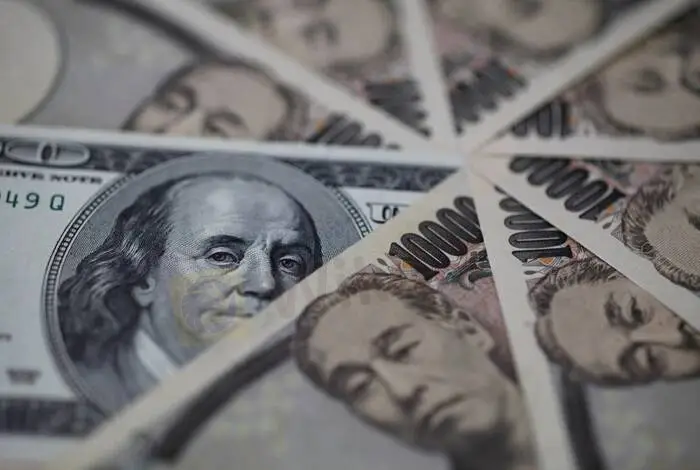简体中文
繁體中文
English
Pусский
日本語
ภาษาไทย
Tiếng Việt
Bahasa Indonesia
Español
हिन्दी
Filippiiniläinen
Français
Deutsch
Português
Türkçe
한국어
العربية
Dollar slips as Powell boost fades
Abstract: The yen fell through the psychological 120 level for the first time since 2016 on Tuesday, after a hawkish speech from Federal Reserve Chair Jerome Powell raised bets on higher U.S. interest rates and widened the policy gap on a dovish Bank of Japan.
The dollar edged lower on Tuesday as a boost from comments by U.S. Federal Reserve Chair Jerome Powell that boosted the greenback on the previous day faded and a rise in equities markets help boost risk-on sentiment.

The greenback saw its biggest one-day percentage gain since March 10 on Monday, as Powell opened the door for raising interest rates by more than 25 basis points at upcoming policy meetings in order to combat inflation.
On Tuesday, St. Louis Fed President James Bullard repeated his call for the Fed to move aggressively on Bloomberg TV. San Francisco Fed President Mary Daly said she believes the main risk to the economy is a worsening of already high inflation as oil prices climb due to the conflict in Ukraine and a disruption in supply chains from Chinas COVID-19 countermeasures.
Traders are pricing in a 61.6% chance of a 50-basis-point hike at the Fed‘s May meeting, according to CME’s FedWatch Tool, up from slightly more than 50% a week ago.
In the wake of Powells comments, Goldman Sachs now anticipates the central bank will raise interest rates by 50 basis points at both its May and June meetings.
Investors were in a risk-on mood, as U.S. stocks rose and dented some of the safe-haven appeal of the greenback, with equities getting a lift, in part, from bank shares on Fed rate hike expectations.
“For the dollar, it is well supported by the Fed‘s increasingly hawkish rate stance but it is off its peaks, risk-appetite has something to do with that, with stocks higher that is kind of tempering the dollar’s gains,” said Joe Manimbo, senior market analyst at Western Union Business Solutions in Washington.
“At least for now, it seems the market is giving the Fed the benefit of the doubt that it can foster a soft landing and that is what is underpinning risk appetite and capping gains in the dollar.”
The dollar index fell 0.06%.
The yen continued its recent weakness as the Bank of Japan renewed its stance on keeping its ultra-loose monetary policy intact.
The yen hit a fresh six-year low of 121.03 and last weakened 1.05% versus the greenback at 120.72 per dollar.
The yen also suffered against other currencies, with the euro hitting a five-month high of 133.33 and was last up 1.2% to $133.17. The Japanese currency slumped to a more than 6-1/2-year low against the Swiss franc at 128.91, with the franc last up 1.48% to $128.89.
The euro was up 0.13% to $1.1028. The single currency has weakened over the past month as the conflict in Ukraine has escalated, leading to an increase in energy prices. On Monday, European Central Bank President Christine Lagarde said the Fed and ECB will move out of sync, as the war in Ukraine has very different impacts on their respective economies.
But ECB policymaker Francois Villeroy de Galhau said on Tuesday the central bank needs to look beyond short-term swings in energy prices and focus on underlying inflation trends.
Sterling was last trading at $1.326, up 0.72% on the day.
In cryptocurrencies, Bitcoin last rose 3.67% to $42,662.37.
Ethereum last rose 3.59% to $3,014.26.
(Reporting by Chuck Mikolajczak; Editing by Marguerita Choy and Jonathan Oatis)
Disclaimer:
The views in this article only represent the author's personal views, and do not constitute investment advice on this platform. This platform does not guarantee the accuracy, completeness and timeliness of the information in the article, and will not be liable for any loss caused by the use of or reliance on the information in the article.
WikiFX Broker
Latest News
How Long Can the Dollar Remain Strong?
Forex Price Trend Prediction! | Come be a New Year Price Winner!
HFM NY Special Offer!
How a Promised RM1.4 Million Return Turned into a Costly Scam
Cinkciarz.pl Under Fire: Frozen Accounts, Missing Funds
First Unfair Trading Case Reported Under South Korea’s Virtual Asset User Protection Act
“Predict and Win” Big Rewards! Join the Contest Now
"Jumped Deposit Scam": New Wave of Financial Fraud in India
South Korean President Yoon Suk Yeol's Arrest Shakes Markets
Titanium Capital LLC Ponzi Scheme: Henry Abdo Admits Fraud, Impacting Over 200 Investors
Currency Calculator






